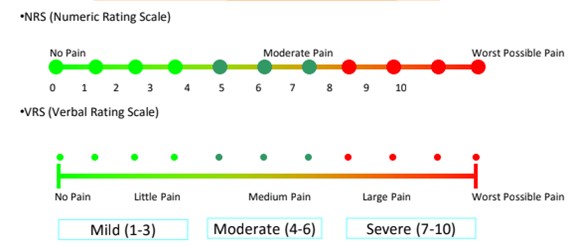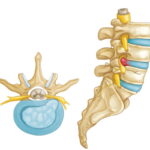
Management of Pain
Pain is defined by the International Association for the Study of Pain as ‘an unpleasant sensory and emotional experience, associated with actual or potential tissue damage’. Chronic pain is where pain persists for 3 months or more. Pain is an individual, multifactorial experience influenced by culture, previous pain events, belief, mood and ability to cope. The perception of the amount and severity of a pain varies from person to person and as such, the management of pain needs to be customised for each person.
Click to view Pfizer video on Chronic Pain
Types of pain symptoms
- Nociceptive pain is characterised by throbbing, sore, dull pain or tender sensations. Examples include any inflammation, arthritis, wear and tear of the joints, after injury or post-operation pain
- Neuropathic pain is characterised by electric shock, stabbing sensation, feeling cold or hot, tingling, prickling or pins and needles sensations. Examples include trigeminal or post herpetic neuralgia, diabetic neuropathy or pain after stroke
- Nociplastic or Centralised pain is increased sensitivity to light or noise in apparently normal tissues. Examples include fibromyalgia, irritable bowel syndrome, complex regional pain syndrome or chronic back pain
Measurement of Pain
Pain can be measured using a Visual Analog Scale as shown below. It is useful to keep a Pain Diary or use TELEME Pain / Mood Health Tracker to help you record your symptoms regularly to share with your doctor treating you. Do also describe any factors or events which aggravate the pain

Management of Pain
The goal of pain management for the patient is to
- Reduce (rather than eliminate) the perception of pain
- Restore or increase the physical activity levels
- Improve the quality of life
- Minimise any side effects of the pain medication prescribed to you
Click to view Health Navigator NZ on Tips on Managing Chronic Pain
Self Help Tips
As a patient, you also need to help yourself by adopting a healthier lifestyle and change your mindset towards the cause of your pain
- Eat well and adopt healthy sleep habits
- Change the way you think about your pain and adopt a more positive attitude towards life
- Stay active and do regular gentle exercises like walking
- Distract yourself and practice mindfulness to keep your mind off the pain
- Reduce stress by learning to relax
- Massage therapy or acupuncture may help to relieve pain in some cases
- Discuss with your doctor for a pain regime suitable for your health condition
- Spend quality time with your family and friends or join a support group
- Consider attending a pain self-management program
- Talk to a counsellor to share your concerns or worries
Discuss your pain management with your doctor or pain specialist
Disclaimer. TELEME blog posts contains general information about health conditions and treatments. It is not intended to be a substitute for professional medical advice, diagnosis or treatment. The information is not advice and should not be treated as such.
If you think you may be suffering from any medical condition, you should seek immediate medical attention from your doctor or other professional healthcare providers. You should never delay seeking medical advice, disregard medical advice, or discontinue medical treatment because of information on this website.








